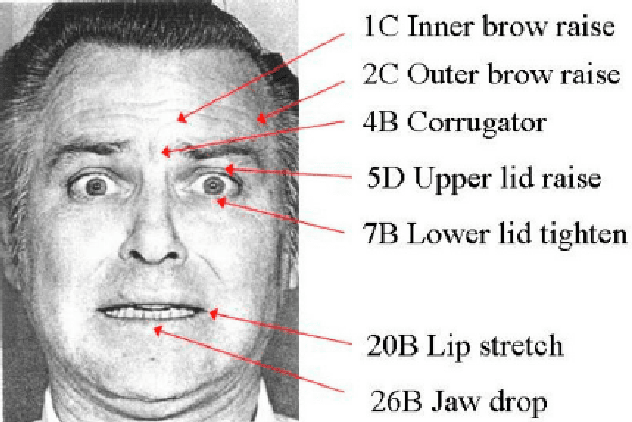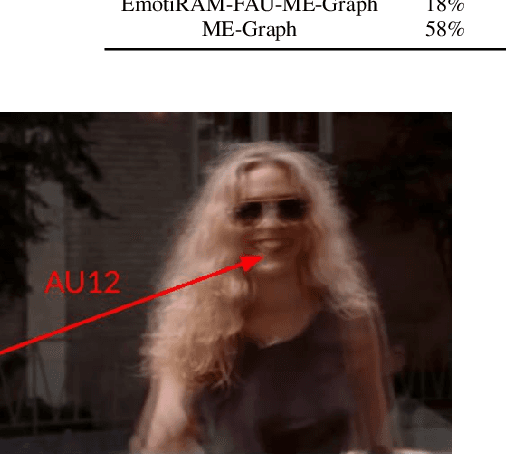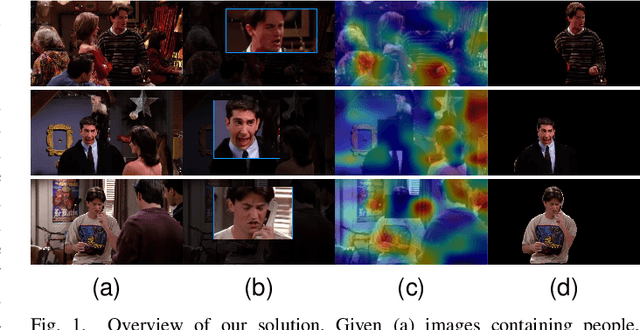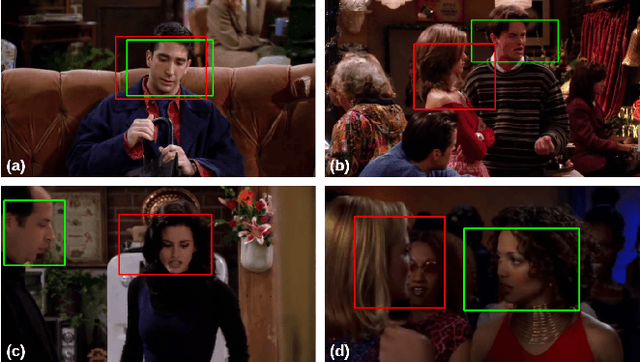Willams Costa
Leveraging Previous Facial Action Units Knowledge for Emotion Recognition on Faces
Nov 20, 2023



Abstract:People naturally understand emotions, thus permitting a machine to do the same could open new paths for human-computer interaction. Facial expressions can be very useful for emotion recognition techniques, as these are the biggest transmitters of non-verbal cues capable of being correlated with emotions. Several techniques are based on Convolutional Neural Networks (CNNs) to extract information in a machine learning process. However, simple CNNs are not always sufficient to locate points of interest on the face that can be correlated with emotions. In this work, we intend to expand the capacity of emotion recognition techniques by proposing the usage of Facial Action Units (AUs) recognition techniques to recognize emotions. This recognition will be based on the Facial Action Coding System (FACS) and computed by a machine learning system. In particular, our method expands over EmotiRAM, an approach for multi-cue emotion recognition, in which we improve over their facial encoding module.
Multi-Cue Adaptive Emotion Recognition Network
Nov 03, 2021



Abstract:Expressing and identifying emotions through facial and physical expressions is a significant part of social interaction. Emotion recognition is an essential task in computer vision due to its various applications and mainly for allowing a more natural interaction between humans and machines. The common approaches for emotion recognition focus on analyzing facial expressions and requires the automatic localization of the face in the image. Although these methods can correctly classify emotion in controlled scenarios, such techniques are limited when dealing with unconstrained daily interactions. We propose a new deep learning approach for emotion recognition based on adaptive multi-cues that extract information from context and body poses, which humans commonly use in social interaction and communication. We compare the proposed approach with the state-of-art approaches in the CAER-S dataset, evaluating different components in a pipeline that reached an accuracy of 89.30%
 Add to Chrome
Add to Chrome Add to Firefox
Add to Firefox Add to Edge
Add to Edge